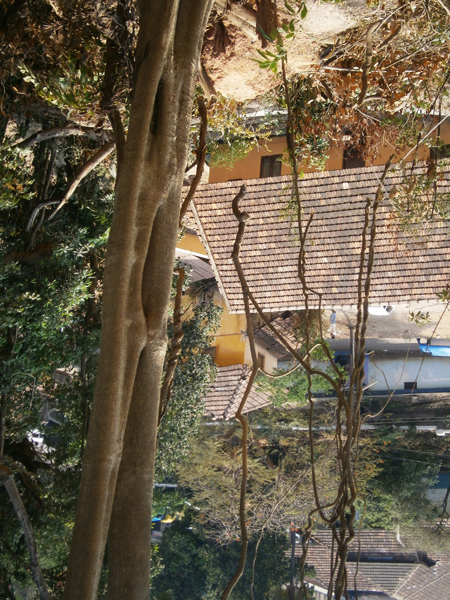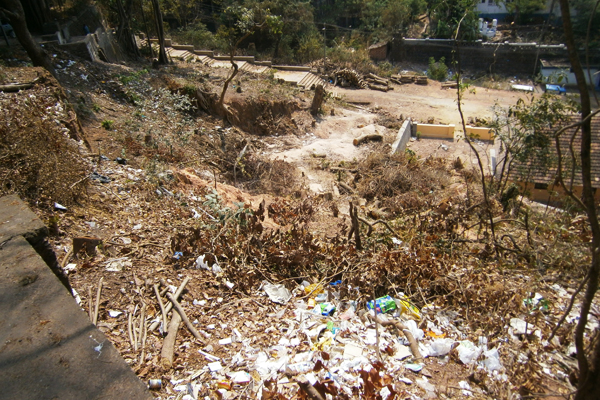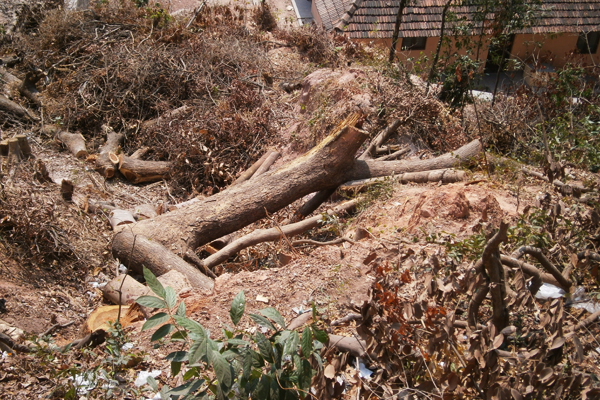
According to a press release, the northern slope of the Court hill harboured the last patch of the original forest which once covered the entire hill. The patch though small, formed an ecological niche of representative trees of the area. Perched on these trees were lianas – creepers with stems having a girth of a man's arm. It must have taken centuries for them to reach this size. The trees provided a living space for epiphytes like ferns and orchids characteristic of the flora of the region. The tree canopies were a refuge to many a bird in the middle of the city. The early morning walkers on the court road could enjoy listening to them singing to their hearts content in the shelter of the trees. The area was a home to a number of reptiles and frogs which are considered to be endangered.
The uppermost portion of this area below the Museum and the High School Building of St Aloysius College has been preserved as 'Al-Vana,' the biodiversity park of the college. In the past, the authorities had proposed to widen the road by felling the trees on the upper side of the road. However, the proposal was dropped with the agitation. A portion of the green cover was destroyed to make space for the proposed “Ambedkar Bhavan”.
Though this has not materialised till date, the age-old majestic trees which stood there are gone forever.
The Forest Department has given permission to cut an enormous 38 precious trees to make space for the building - and the deed has already been done.
The majestic trees are felled and cut and strewen on the ground. The valuable lianas are dangling, cut off from their base. A condition has been put that the party has to plant two trees for every tree they cut.
It may be said that they will fulfill this condition. But it will not bring back the original tree cover which was there for ages and which forms the last representatives of the original flora of Mangalore.
The cutting of these trees is an irreparable loss for the people of Mangalore and no less for the biodiversity of flora and fauna of Mangalore, said the release.








Comments
Add new comment